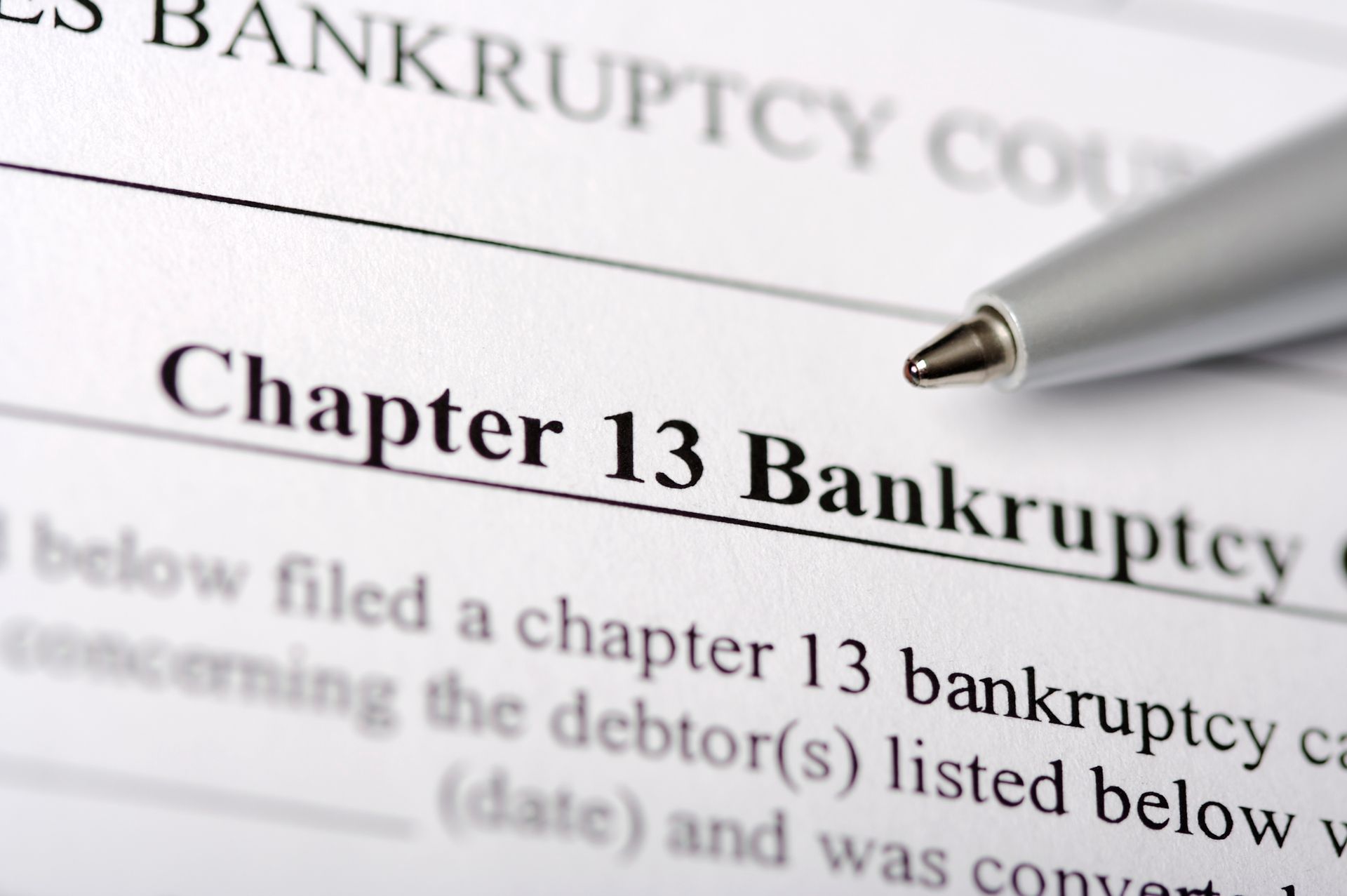Bankruptcy Exemptions Explained by Top Bankruptcy Attorney in Monmouth County

As a trusted law firm and bankruptcy attorney in Monmouth County for over a decade, Veitengruber Law works with many folks who are unsure if bankruptcy is the right choice. The reluctance to file for bankruptcy is often two-fold. There is a taboo surrounding bankruptcy that frequently leads individuals to avoid filing until their financial situation is dire beyond repair. Even when bankruptcy is considered, people can hold off on filing because they believe they will lose all their property and assets through the bankruptcy process. This is simply untrue; in fact, both state and federal laws are in place, outlining specific exemptions that allow bankruptcy filers to exempt particular property from the bankruptcy estate.
Exemptions in bankruptcy allow you to keep the essential personal property you need to work and live. The decisions you make about which property to exempt are individual and will vary from person to person, depending on your goals and financial situation. Here is what you need to know about bankruptcy exemptions in New Jersey.
Choosing Federal or State Exemptions
In New Jersey, you have the choice to use one of two different sets of exemptions: State or Federal. Each offers a unique path to protect your personal property and assets. To make an informed choice, you must understand the differences between these exemption statutes.
NJ Bankruptcy Exemptions:
New Jersey’s exemptions generally do not protect as much property as federal exemptions. Still, depending on your specific goals, it may be the right option for you. NJ bankruptcy exemptions include:
- Personal Property Exemptions: this includes clothing, burial plot, stocks and interest in corporations, $1,000.00 for furniture and household goods
- Public Benefits: workers’ compensation, unemployment compensation, Social Security, veterans’ benefits, disability assistance, and crime victims’ compensation
- Pensions for Public Employees
Federal Bankruptcy Exemptions:
Federal exemptions offer much more protection for NJ residents who file for bankruptcy. These include:
- Homestead Exemption: $27,900 for individuals, $55,800 for spouses who co-own property
- Motor Vehicle Exemption: up to $4,450
- Tools of the Trade Exemption: up to $2,800 in tools and equipment required for work
- Wildcard Exemption: $1,475 to be used however the filer desires OR up to $13,950 if the homestead exemption is unused
- Personal Property: $700 per item, $14,875 total for animals, crops, clothing, appliances, furnishings, books, household goods, and musical instruments; jewelry up to $1,875
- Public Benefits and Retirement Accounts: personal injury recoveries up to $27,900, wrongful death recoveries, alimony or child support, tax-exempt retirement accounts, IRA/Roth IRA accounts up to $1,512,350
Because federal exemptions typically allow individuals to protect more of their property, most opt to utilize them. However, you should not automatically opt for either state or federal exemptions without first discussing your options with an attorney. Bankruptcy is never a one-size-fits-all solution for everyone. Different individuals will benefit from different options within the bankruptcy process. Working with an experienced NJ bankruptcy attorney will help you to make informed choices and protect your assets.
Who is Eligible for State Bankruptcy Exemptions?
There are specific rules in place regarding who is eligible for specific state exemptions. Some states offer better opportunities for exemptions than others. Because of this, it may be tempting to relocate to a state with more favorable bankruptcy exemptions; however, some rules prevent this kind of strategic moving.
To determine if you are eligible for certain exemptions from a specific state, the rules are:
- IF you have lived in your current state for at least two years, you are allowed to use that state’s exemptions.
- IF you have moved within the last two years, you are eligible for the exemptions from the state in which you lived the longest during the 180 days immediately before the two years before filing.
You might be thinking: WHAT? It can be a bit confusing, so we will look at this through an example.
Let’s say you plan to file for bankruptcy in New Jersey on January 1, 2026. The two-and-a-half-year period you are considering would begin on July 1, 2023. Whatever state you resided in for the majority of the days between July 1, 2023, and December 31, 2023, is the state’s exemptions you are allowed to use. While you will not have to file your case in that state, you can use that state’s exemptions.
Property That Cannot Be Exempted in NJ Bankruptcy
Depending on the type of bankruptcy you file, you may lose property not covered by an exemption. The bankruptcy trustee can sell any non-exempt property to pay back your creditors. Here are the exemption differences between Chapter 7 and Chapter 13 bankruptcies:
Chapter 7: When you file for Chapter 7 bankruptcy, your assets enter into a bankruptcy estate. Assets from this bankruptcy estate can be sold to pay off debts to your creditors. If the property or asset falls under one of the state or federal exemptions, you can protect it from being sold.
Chapter 13: If you file for Chapter 13 bankruptcy, you can keep all your property. The bankruptcy court will not take your property to pay back your creditors. Instead, you must pay your creditors back the value of any property not covered by an exemption. This payment will be included in your Chapter 13 repayment plan and will be paid over a period of three or five years.
For example:
Let’s say you own a car outright. This car is worth $3,000. You decide to use the federal motor vehicle exemption of $4,450. If you decide to file for Chapter 7 bankruptcy, you will be able to keep your car because the exemption protects the equity of the vehicle. If you file for Chapter 13 bankruptcy, you will not have to pay your creditors through your repayment plan, as the full equity of your vehicle is protected.
But let’s change the example and say your vehicle is owned outright and worth $15,000. When filing Chapter 7 bankruptcy, the bankruptcy trustee would sell your vehicle, give you $4,450 for the exemption, and distribute the remaining funds from the sale to your creditors. However, if you file Chapter 13, you would need to pay your creditors at least $10,550 through your plan.
How Do I Protect Financed Property in NJ?
You cannot use bankruptcy to discharge a home mortgage loan or a car loan and keep the property without paying for it. If you still owe a balance on your loan, you must pay as initially agreed upon to prevent foreclosure or repossession of the property. How secured debt is managed under bankruptcy again depends on which chapter you file under:
Chapter 7: While Chapter 7 bankruptcy can allow you the time to sort out your payments and get caught up on your mortgage, no mechanism within Chapter 7 allows you to catch up on or cure your past-due payments for secured debts. Your mortgage or car payment must be up to date to maintain the property. Otherwise, you risk losing it.
Chapter 13: You will not lose property under Chapter 13 bankruptcy. However, the judge will only approve your repayment plan if you can prove you make enough money to continue making monthly payments AND repay any late payments by the end of your three- or five-year plan.
Bankruptcy exemptions can be complex and confusing. Exemption laws are also constantly changing, so it is crucial to the success of your bankruptcy that you work with an experienced attorney. Veitengruber Law has been assisting individuals in filing for bankruptcy in Monmouth County for over a decade. We can help you make informed choices to get your finances back on track.










